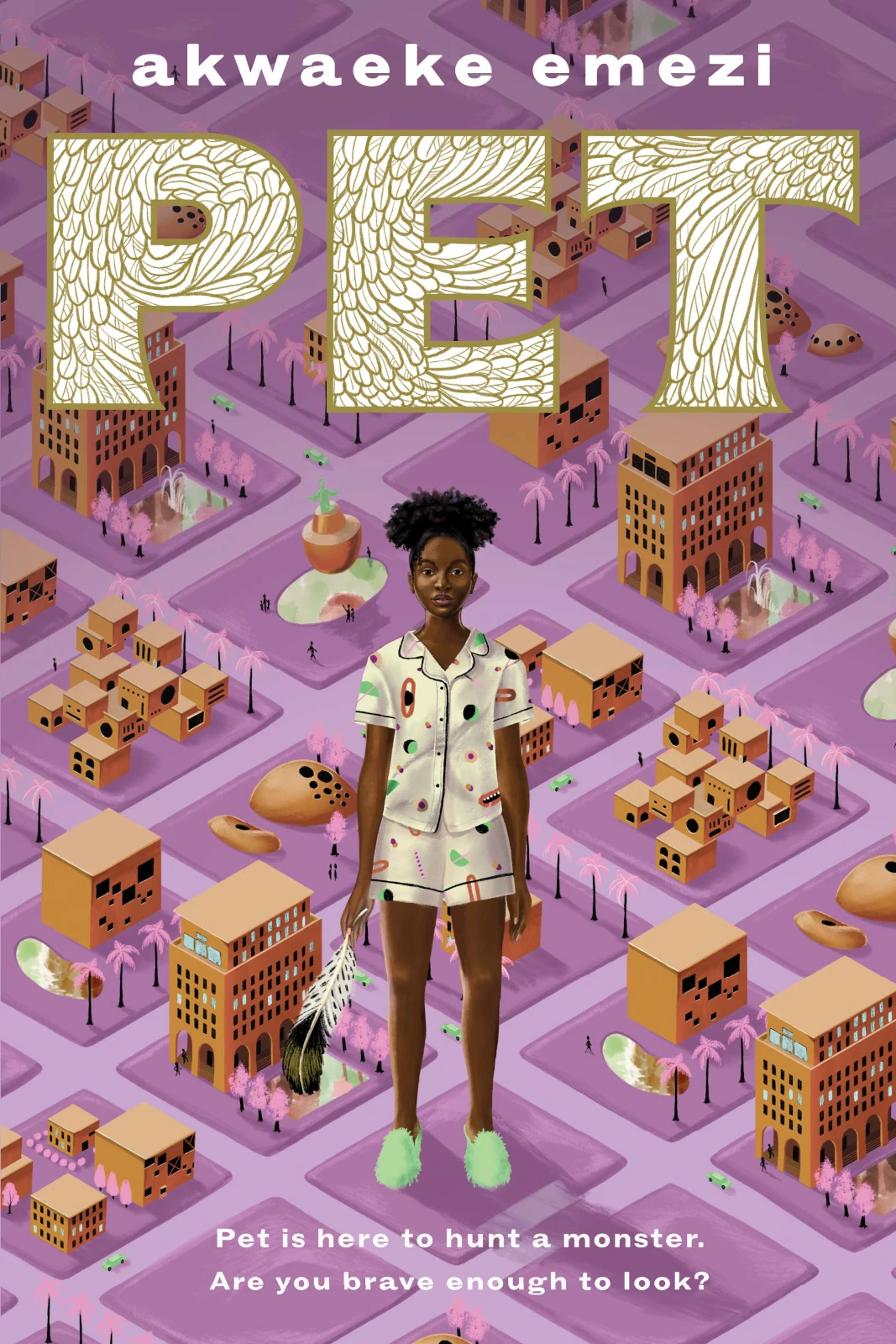
Shattering Utopia: A Review of Pet by Akwaeke Emezi
Words By Jerakah Greene
Published September 10, 2019 by Make Me a World
Utopia means a great many things to a great many people. My personal utopia, for example, would have to include a box set of Sex and the City and an endless supply of Starbucks e-gift cards. Generally, a modern utopia would entail a world run on sustainable energy, an end to suffering, and hover cars. Akwaeke Emezi’s strikingly imaginative second novel, Pet, offers up a different kind of utopia, one in which abusers have been eradicated.
After an earth-shattering revolution, the town of Lucille is finally safe. The monsters have been removed, punished by the angels, who have now taken control of this picturesque place. Fifteen-year-old Jam and her best friend Redemption have grown up in a worry-free Lucille. A town where history is taught so that it will not be repeated, where a fifteen-year-old trans girl can choose when she speaks and when she signs, where love and happiness are palpable in the air. Jam’s transness was so uncomplicated, so naturally included that I didn’t realize the importance of such a character until I’d already turned the last page. The small details—her hormones, her afro, her father’s fried plantains, and her mother’s accent—it all contributed to a feeling of complete belonging. These characters belonged on the page, in this story, just as they belong next to us on the train, or in class.
But when an angel comes to visit her, Jam quickly realizes that all is not as it seems. There are still monsters in Lucille, and now Jam is entangled in the hunt.
Pet is an angel, but it looks nothing like our understanding of how angels are supposed to look. Despite its intentionally abstract appearance, I could picture it so clearly—its horns, its dismembered hands, its eyeless face. When it tells Jam that the monster is in Redemption’s house, she refuses to believe it. Even when they find proof, Jam still holds onto the possibility that Pet has made a mistake—there can’t be monsters in Lucille. They were all brought to justice…right?
Why can’t we ever look the truth in the eye? Pet explores the complexity of abusive situations and our knee-jerk tendency to deny that which we don’t want to be true. Jam does not want to believe there are monsters in Lucille, doesn’t want to believe that someone she knows is being abused—but Pet, the terrifying angel, will not let her look away.
I couldn’t look away from this heart-wrenching read. It hits close to home, especially in a post-#MeToo world. How many excuses have we heard? People find any reason they can to justify abusive behavior and keep secrets to protect abusers. Jam’s reluctance to believe in Pet’s purpose—to hunt monsters—isn’t ignorance or naivety, it’s human nature. We want to believe there is good in people, even when all signs point to the opposite. Pet taught me that this isn’t a weakness. We must all be vigilant, we must all be aware, but we must also be kind. Jam knows that kindness is the only way to foster happiness; if we don’t allow people and communities to learn from their mistakes, what’s to keep it all from happening again? Fear doesn’t bring change, gentleness and understanding does.
In Lucille, the monsters look just like anybody else. They could be your teachers, your boss, your parents. In our world, they are. Pet doesn’t just shatter the untruthful utopia of Lucille, but ours as well. Abusers are everywhere, and it will take a lot more than a hunt to banish them from our reality.
Emezi’s voice is incredibly distinct; I’ve never read anything quite like it. Pet breaks all the rules; it’s full of metaphors and odd phrasing where other authors might play it safe. The metaphor of monsters as abusers hits you over the head sometimes; it’s painfully obvious, the point Emezi is trying to make. Monsters are among us—there’s no getting around it.
Emezi’s beautifully spun novel reminds us of three things: that the ugly is beautiful, that everyone deserves to have their story told, and that the world is never as perfect as we might like it to be—but we should never stop fighting to make it so. Though there may be monsters among us, there are also angels, and they are beautiful.